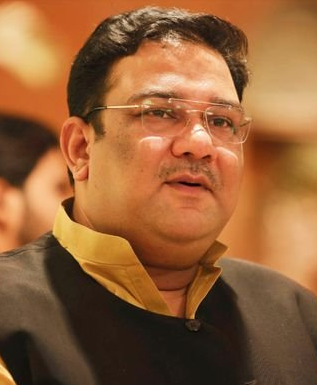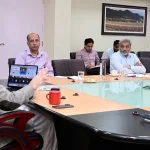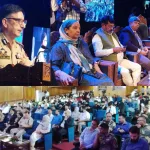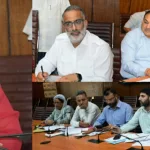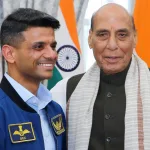India is a land of diversity where people of many religions and cultures live together. Hindus make up around 80% of the population, while Muslims make up about 15%. In a country where the majority of people see the cow as a holy animal, it becomes our responsibility to respect their emotions. Respecting others’ beliefs is about living in harmony and avoiding any actions that could hurt others or cause problems in society. In Islam, our religion teaches us to live peacefully with others and to respect their traditions and beliefs. The Quran tells us to avoid doing things that may hurt others, especially if it leads to arguments or violence. When we understand that the majority of people in India feel strongly about the cow being sacred, it is our duty as Muslims to ensure that we do not hurt their feelings. This is about living in a way that promotes love and friendship.
Cow slaughter has been a major cause of tension and violence in India. In recent years, there have been several incidents of mob attacks and lynchings where people accused of cow slaughter or beef consumption were beaten or even killed. Many of these attacks happened because of misunderstandings or false rumors. Such incidents create a divide between communities, making it harder for people to trust one another.
One of the reasons why cow slaughter creates such a big issue in India is because cows are deeply connected to Hindu culture. The cow is often called “Gau Mata,” which means Mother Cow. Hindus believe that the cow represents kindness, care, and the ability to give selflessly, as it provides milk to humans. In villages and rural areas, cows are also considered family members, and many families depend on them for their livelihood through dairy farming.
India is the world’s largest producer of milk, contributing a significant amount to the global dairy industry. Millions of farmers, especially in rural areas, rely on cows for their income. The Indian dairy industry is a cornerstone of the nation’s agriculture, with milk production reaching approximately 230 million metric tons in the fiscal year 2023. This marks a steady increase from previous years which underscores the sector’s growth and importance. India stands as the world’s largest milk producer, with per capita availability of milk at 459 grams per day. So, when cows are slaughtered, it disrupts this system and affects the economy of villages. Protecting cows is about supporting the livelihoods of farmers and ensuring the country’s economic stability.
In Islam, sacrificing animals is a part of religious practices, especially during Eid al-Adha. However, it is important to note that Islam does not specifically require the sacrifice of cows. Other animals, such as goats, sheep, or buffaloes, can also be sacrificed. In a country like India, where cow slaughter creates so much tension, choosing alternatives is a simple way to avoid hurting others while still fulfilling our religious duties.
In 2017, the Indian government, under Prime Minister Narendra Modi, initiated a crackdown on illegal slaughterhouses. This move was particularly prominent in states like Uttar Pradesh and aimed to enforce existing laws and regulate the meat industry. Many unregistered and unregulated slaughterhouses were shut down as part of this initiative. India has been the largest milk producer in the world, with milk production steadily increasing over the years.
In 2023, the country’s milk production reached 230 million metric tons, showing steady growth. This increase is attributed to an expanding population of milking cows and improved dairy farming techniques. The number of cows in milk has risen significantly, with crossbreed or exotic cows making up 25% of the population, compared to 15% a few years ago. Protecting cows ensures the sustainability of this vital sector, which supports millions of rural farmers and strengthens the nation’s economy.
From 2016 to 2020, over 50 people lost their lives in mob violence and lynching incidents related to allegations of cow slaughter or beef consumption. These tragic incidents often stemmed from misunderstandings, false rumors, or social media misinformation. Such violence has created divisions between communities and underscored the importance of addressing these issues to maintain peace and unity in India. Communal harmony can be promoted by respecting religious sentiments and preventing the spread of misinformation that fuels violence.
Our history shows that Hindus and Muslims have lived together peacefully for centuries. During the Mughal era, rulers like Akbar and Jahangir avoided cow slaughter to respect the beliefs of their Hindu subjects. Their decision to respect these sentiments helped maintain peace and unity in the empire. If they could show this level of understanding hundreds of years ago, we can certainly do the same in today’s modern world. Violence related to cow slaughter often happens because of a lack of understanding and communication.
Many people do not realize that respecting the majority’s beliefs does not mean giving up one’s own. It simply means finding a balance that ensures everyone can live peacefully. Avoiding cow slaughter is one such way to show respect and prevent unnecessary conflicts. In recent years, social media has played a big role in spreading false information about cow slaughter. Videos and messages claiming that someone has harmed cows often go viral, even when the claims are not true. This creates anger among people, leading to mob violence. It is important for everyone to verify information before sharing it and to avoid spreading rumors that can create trouble.
As Muslims, we have the power to lead by example. By choosing not to slaughter cows and by openly promoting peace and respect, we can show that we value the emotions of the majority community. This small step can go a long way in building trust and reducing the mistrust that often exists between Hindus and Muslims.
Education is another key factor in solving this issue. Schools and colleges should teach children about the importance of respecting others’ beliefs and living together peacefully. When young people learn about the cultural and religious significance of cows for Hindus, they will be better equipped to understand why avoiding cow slaughter is important.
Religious leaders can also play an important role in promoting harmony. They can use their influence to encourage their communities to respect the sentiments of others. By preaching the message of peace and understanding, they can help reduce tensions and prevent violence.
The government has a big responsibility in managing this issue. Strict laws should be in place to ensure that slaughterhouses follow rules and regulations. At the same time, the government should ensure that no community feels targeted or discriminated against. A fair and transparent system will help build trust among people. Media outlets should also report responsibly. Instead of sensationalizing incidents related to cow slaughter or mob violence, they should focus on stories of unity and cooperation.
Highlighting examples of peaceful coexistence can inspire others to follow the same path. Economic alternatives should also be provided to those who depend on cattle trade and slaughterhouses for their livelihood. Many Muslims earn their income through these industries, and offering them other opportunities, such as dairy farming or goat trade, can reduce their dependence on cow slaughter.
It is important to remember that avoiding cow slaughter is about finding a way to live together peacefully in a diverse country. Islam allows flexibility, and choosing an alternative to cow slaughter is a small sacrifice for the greater good of maintaining harmony in society. As Muslims, it is our duty to contribute to this unity and to show the world that diversity can be a source of strength, not division.
Stopping cow slaughter in India is a way to respect the beliefs of the majority community and to ensure peace and harmony in our society. As Muslims, we should take the lead in promoting understanding and showing that our actions are guided by compassion and respect.
(Author is Professor & Former Media Advisor of Aligarh Muslim University (AMU). Email:[email protected])


